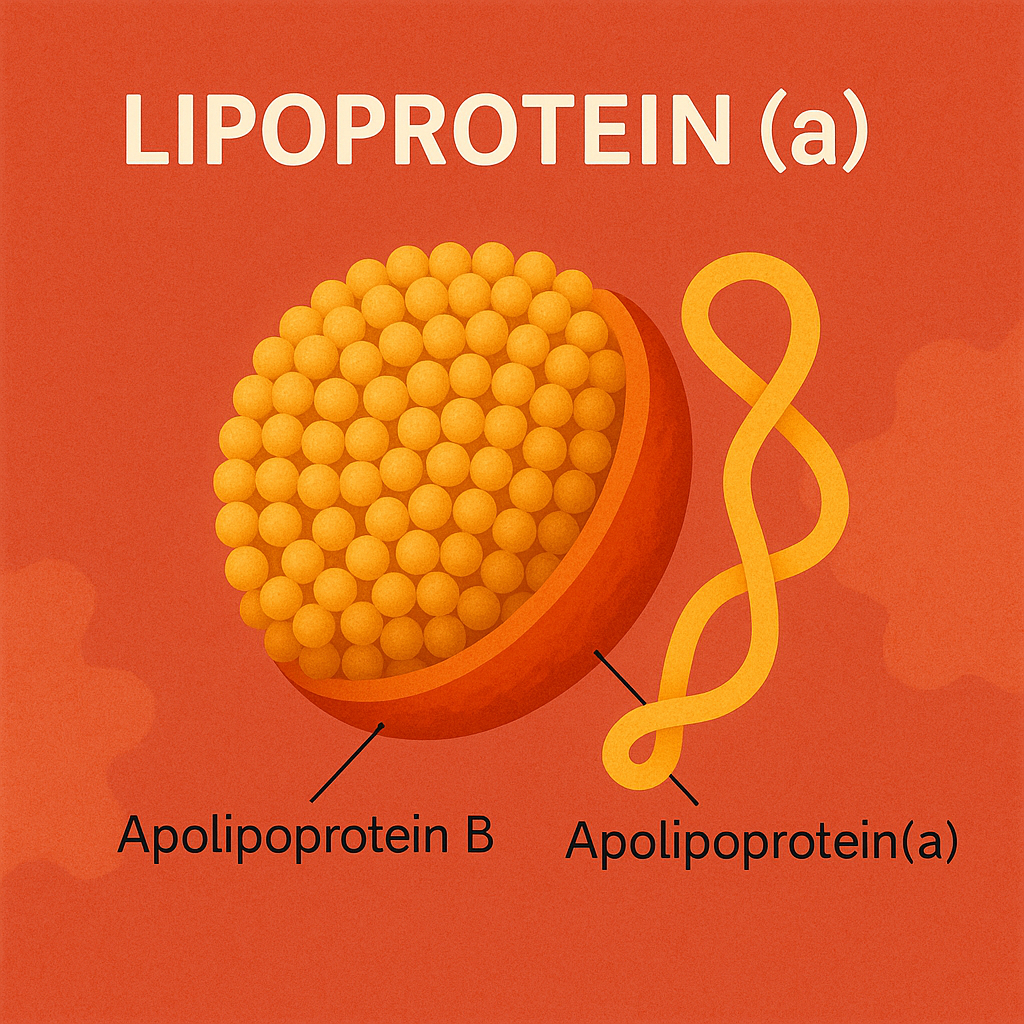
Lipoprotein(a): the hidden cholesterol that increases cardiovascular risk
Mike MunayShare
Lipoprotein(a): The hidden cholesterol that can change everything
When we talk about cholesterol, we usually think of three main components: LDL, HDL, and total cholesterol.
You must remember that there is no such thing as "good" or "bad" cholesterol, as we discussed in this article. Cholesterol is the basic menu item that appears in almost any blood test, and when it's high, we say we have dyslipidemia.
But there is a fourth element, much less known and to which very little attention has been paid for decades: lipoprotein(a) or Lp(a).
Lipoprotein(a) or Lp(a) is a hot topic in cardiology because for a long time it was half-forgotten, but now it is pointed out as an independent cardiovascular risk factor, almost a "silent enemy" that is not detected with standard tests.
And here's the disturbing part: Lp(a) may be as important a cardiovascular risk factor as LDL cholesterol, yet most people have never had their levels measured. It's as if there were a villain lurking in the shadows of your cardiovascular health.
What is lipoprotein(a)?
In simple terms, Lp(a) is a steroid-containing LDL. It consists of an LDL particle (the infamous and misnamed "bad cholesterol") bound to an extra protein: apolipoprotein(a).
This bond isn't a mere detail: it makes it a much stickier particle, harder to remove from the blood, and more likely to deposit on the artery walls. In other words, a perfect candidate for accelerating arteriosclerosis.
Why should you care?
Because elevated Lp(a) doubles the risk of myocardial infarction, stroke, and even aortic stenosis. And it does so independently: it doesn't matter how perfect your LDL is or how exemplary your lifestyle is, if Lp(a) is high, the risk remains.
The worst part is that it doesn't cause symptoms. You can run marathons, eat healthy, and sleep eight hours, and still have this "hidden cholesterol" working against you, since unlike LDL or HDL cholesterol, which respond to diet, exercise, and medications, Lp(a) is practically written in your DNA. The concentration in your blood depends on the number of repetitions of a fragment of the gene that encodes apolipoprotein(a).
Translated: If you have high Lp(a), it's not because you're doing something wrong. It's purely genetic. In fact, it's common in families with several early heart attacks (people who suffer an event before age 50), Lp(a) is the real culprit.
How to know your levels
Here's the catch: Lp(a) isn't measured in routine blood tests. If your doctor doesn't specifically request it, it will never appear on the report. Therefore, it must be specifically requested when performing a blood test.
Values are usually expressed in mg/dL or nmol/L, and above 50 mg/dL (or 125 nmol/L) is considered a high level.
What if you have it high?
Right now, the bad news: there is no specific approved treatment to lower Lp(a).
- Niacin (vitamin B3) could reduce it, but the side effects outweighed the benefits.
- Statins, which are the gold standard for reducing LDL, have no impact on Lp(a).
What's left? Be relentless with the rest of your risk factors: keep LDL levels to a minimum, control your blood pressure, don't smoke, monitor your diabetes... In other words, secure all the doors through which cardiovascular disease can sneak in.
The future is already on its way
Research is advancing rapidly. RNA silencing therapies (such as pelacarsen or olpasiran) are already being tested in clinical trials and can reduce Lp(a) by more than 80%. If all goes well, they could become the next revolution in cardiovascular prevention.
Imagine being able to neutralize the hidden villain who has been moving in the shadows for years. That's much closer than it seems.
Conclusion
Lipoprotein(a) is, literally, the cholesterol no one talks about. A genetic factor, silent and invisible in routine blood tests, but with a huge impact on the health of the heart and arteries.
If you have a family history of early heart attacks, or if you simply want to understand all aspects of your cardiovascular risk, ask to have your Lp(a) measured. Only then will you know if there's a hidden character in your story that plays a much more important role than you imagine.

1 comment
Gracias por brindarnos nuevos conocimientos de manera clara paraa tener en cuenta en el cuidado de nuestra salud;